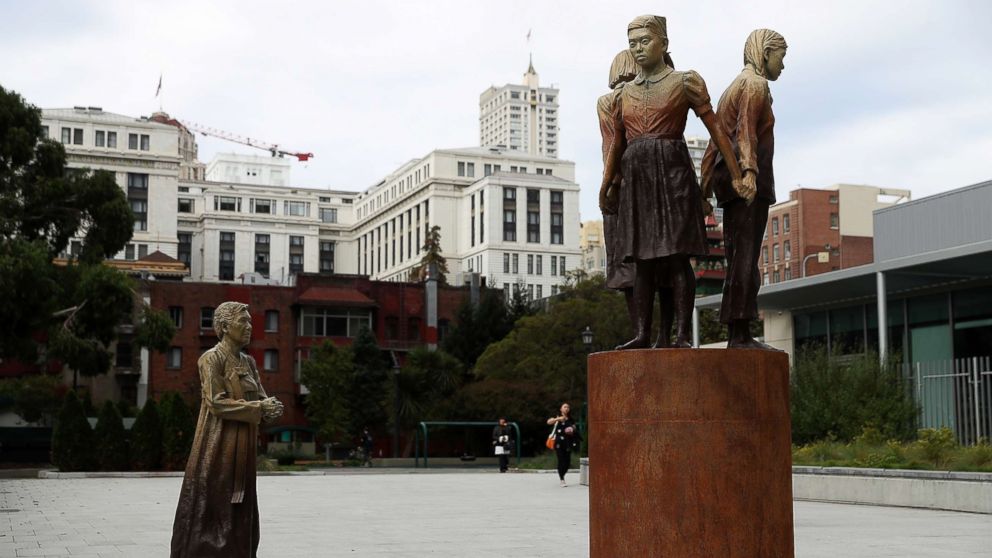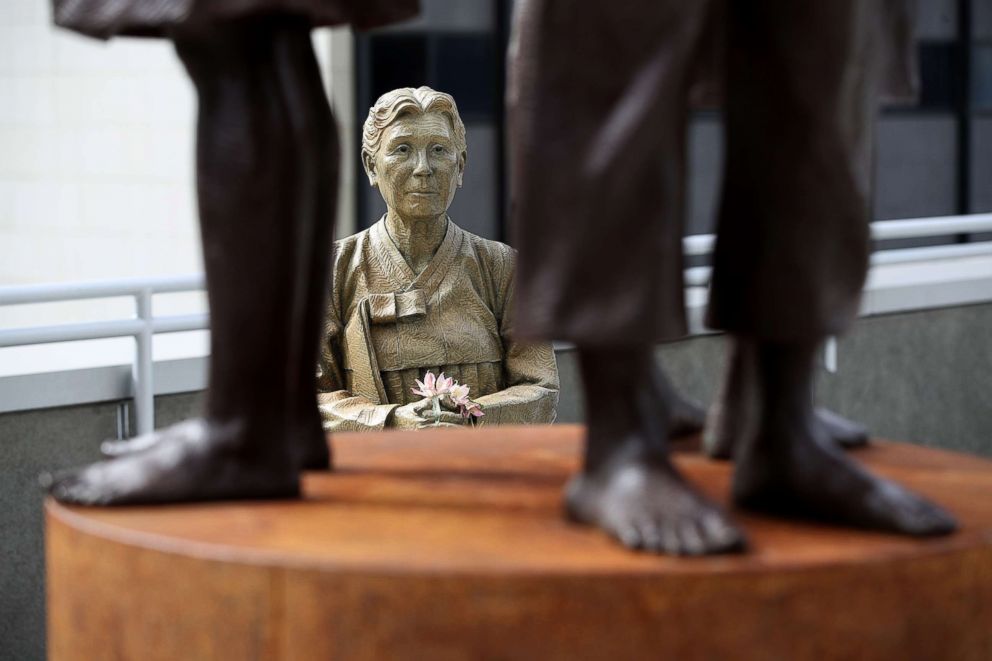Mayors of San Francisco, Osaka battle over 'comfort women' statue and 'sister city' relationship
Osaka's mayor sent a letter to his counterpart, threatening to end formal ties.

The mayors of San Francisco and Osaka are battling over whether to maintain their "sister city" relationship after a fallout over a "comfort women" statue.
Mayor Hirofumi Yoshimura of Osaka, Japan, sent a letter to Mayor London Breed this week that told her of his intention to end formal ties between the cities because of the Comfort Women Memorial statue in San Francisco.
"I am convinced that it is my duty ... to disclose the bitter process leading up to the much regrettable conclusion to terminate our sister city relationship," the letter read.
The statue depicts three females, ages 12 to 20, atop a steel base with an older woman, Kim Hak-sun, the human rights activist, standing to the side. It symbolizes women who were forced into sex slavery at brothels for the Japanese military during World War II.
In its inscription, it reads: "This monument bears witness to the suffering of hundreds of thousands of women and girls euphemistically called 'comfort women,' who were sexually enslaved by the Japanese Imperial armed forces in 13 Asian-Pacific countries from 1931 to 1945."
But Yoshimura said in the letter that the monument presents a "one-sided" message as historical facts, such as the number of people affected and the extent of the Japanese military's involvement.
Breed responded in a statement that Yoshimura -- or any mayor, for that matter -- doesn't have the power to end the relationship.
"One Mayor cannot unilaterally end a relationship that exists between the people of our two cities, especially one that has existed for over sixty years,” she said.
Further, she defended the symbolism of the statue.

"These victims deserve our respect and this memorial reminds us all of events and lessons we must never forget,” she wrote in the statement.
Breed added that the “sister city” relationship will remain through the connection of the cities’ people.
ABC News reached out to the Japanese consulate in San Francisco, but it declined to comment.
The statue was initially proposed in 2015 by a grass root organization called Comfort Women Justice Coalition. Despite continuous backlash from the Japanese government, it was finalized and installed as public property last year by then-Mayor Ed Lee.
When the statue’s sculptor, Steven Whyte, heard about Osaka’s decision to end the "sister city" relationship, he said he wasn’t surprised. He supported San Francisco's commitment to the statue.
“It was such a brave choice for the City of San Francisco to have this work included as part of its permanent collection,” he told ABC News.
There is much debate about how many women and girls were forced into sex slavery during the war, though estimates have been as high 400,000.
Japan has fought back on the comfort women issue in the past. Last year, the country recalled its ambassador in South Korea over a similar statue, only two years after the two nations met and reached an agreement over the issue.
In the U.S., support for the comfort women has been passed on through generations. The Youth Council of Fort Lee, a student organization in New Jersey, fought successfully to erect its own "comfort women" statue.
"We first heard of ‘comfort women’ from our families. Everyone we know has a family member with experience of being a part of that,” said Brian Lee, the group's president.
Lilian Sing, the co-founder of the Comfort Women Justice Coalition, said the group would "absolutely not" change anything about the monument.
“I don’t care how many there were,” Sing said, referring to Yoshimura’s doubts about the number of women impacted. “Even one is bad enough. For a government to sponsor a place to kidnap and detain women so the imperial army can be sexually gratified is just wrong.”
In the letter, Yoshimura said the city will not consider reviving its "sister city" relationship with San Francisco until the statue and its plaque is retracted from public property.
“He is afraid of the truth,” Sing added. “He thinks he can erase history by removing the statue, but we all need to remember it to ensure such atrocities never happen again.”




